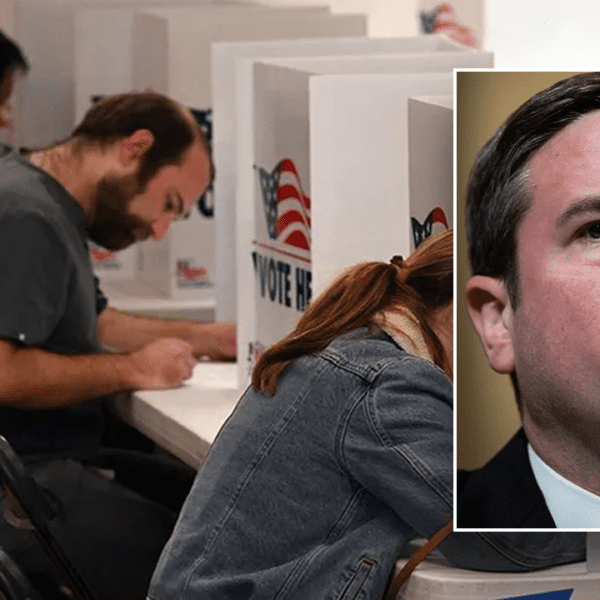
Good morning. Economic confidence among finance chiefs has taken a sharp hit.
Deloitte’s Q2 2025 CFO Signals report released this morning gauges the sentiment of 200 finance leaders in North America at companies with at least $1 billion in revenue. The CFO confidence score came in at 5.4, indicating medium confidence, compared to the Q1 reading was 6.4—high confidence. That’s more than a 15% plunge in a short period of time.
The survey, conducted from June 4 to June 18, found growth expectations declined across every key operational metric. In fact, CFOs lowered projections for revenue, earnings, and capital investments. Fewer than a quarter (23%) of CFOs rate the North American economy as “good now.” In comparison, 50% of the finance chiefs offered the same optimistic response in the Q1 survey.
Just one in three CFOs believe now is a good time to take on more risk—the lowest reading since the third quarter of 2024—and well down from the 60% number in Q1. Meanwhile, 46% of CFOs surveyed say the U.S. capital market is undervalued, and 41% say it’s overvalued. More than half (53%) view debt financing as attractive, 41% for equity.
Uncertainty at the core
I asked Steve Gallucci, the global and U.S. leader of Deloitte’s CFO Program, whether tariff uncertainty was the main cause of decline in optimism. He emphasized that broader global uncertainty is the real driver.
“Anytime there’s uncertainty—whether it’s policy, geopolitics, the economy, or capital markets—CFOs become less bullish,” he explained. While tariffs are one contributing factor, Gallucci noted that the survey doesn’t single them out, and that the overall mood is shaped by a constellation of unpredictable forces.
He pointed to last year’s U.S. presidential election as an example: “There was a lot of uncertainty around the outcome, and CFO optimism dipped. Once the election was settled, optimism spiked. Now, new uncertainties around policy and the broader environment have taken hold, and sentiment has dropped again.”
Recalibrate and reset
CFOs cited the top external risk as the economy (53%). With growth expectations and revenue projections falling, how are CFOs responding? Gallucci described the current environment as a recalibration, not a retreat. Rather than pulling back, finance leaders are doubling down on fundamentals:
—Sharpening focus on growth drivers: CFOs are revisiting where growth can realistically come from, both organically and elsewhere.
—Managing controllable risks: Finance chiefs are prioritizing what they can influence—cost discipline, talent strategy, and technology-enabled initiatives.
—Staying active in M&A: Despite risk aversion, there’s ongoing interest in mergers and acquisitions, with some signs of increased IPO activity in the first half of the year.
Technology and cybersecurity remain top priorities
Gallucci highlighted the growing importance of technology investments—from disruptive innovations to generative AI. However, he noted CFOs are still moving cautiously on AI adoption.
As companies expand their tech platforms, cybersecurity remains a leading external concern (51%). “Cyber will always stay at the top of the CFO risk list,” Gallucci said, especially as businesses rely more on third-party providers and digital infrastructure.
Interconnected internal risks
CFOs cited a trio of top internal risks: talent availability (46%), lack of agility/resilience (46%), and cost management (45%)—as nearly equal in importance.
Gallucci explained that these risks are deeply interconnected. Disrupted supply chains and potential policy changes are driving scenario planning around cost management. Meanwhile, the talent challenge has shifted from hybrid work logistics to capability gaps: “Do I have the right skill set within my finance organization to support the future—one that will rely more on technology, automation, and AI?” he explained.
CFOs are focused on up-skilling, recruiting for new capabilities, and tapping into broader talent pools to ensure their teams are prepared for what’s next.
Deloitte’s Q2 CFO survey reveals a finance leadership community grappling with uncertainty; they’re actively working toward solutions to weather the storm of unknowns and position for future growth.
Sheryl Estrada
[email protected]
Leaderboard
Gregor van Issum was appointed CFO of Wolfspeed, Inc. (NYSE: WOLF), effective Sept. 1. Van Issum succeeds Kevin Speirits, who is serving as interim CFO. Van Issum brings more than 20 years of experience. He’s held senior roles at semiconductor manufacturers ams-OSRAM AG and NXP Semiconductors N.V. Most recently, van Issum served as EVP, group controller at ams-OSRAM.
Big Deal
“Breaking down the infinite workday” is a report released by Microsoft, a follow-up to the 2025 Work Trend Index. The research finds that adopting AI isn’t enough. “What you need now is a Frontier Firm mindset—one that questions how time is spent, how work gets done, and what truly drives impact,” according to the report.
Microsoft offers advice on where to start. For example, become an agent boss. “There’s a new generation of professionals rising through the chaos—not by working more, but by working smarter—we call them agent bosses,” according to Microsoft.
Going deeper
“Social Security sends incorrect email saying ‘Big Beautiful Bill’ ends taxes on benefits—here’s what is actually changing” is a new Fortune report by Alicia Adamczyk.
From the report: “The Social Security Administration sent a misleading email to benefit recipients and other Americans last week about the Republican budget bill that was recently signed into law by President Donald Trump. Advocates are now trying to correct the record to ensure beneficiaries know how the legislation could affect their tax bill.”
Overheard
“We believe this is a tipping point in the Tesla story and ultimately, the Tesla board needs to act now and set the ground rules for Musk going forward around his political ambitions and actions.”
—Wedbush Securities tech analysts wrote in a report released on Tuesday morning. After leaving the Trump Administration and DOGE, Tesla CEO Elon Musk now said he plans to launch a U.S. political party called the “America Party.” On July 4, Musk said a third party could exert pressure on both the Republicans and Democrats by influencing the outcome in a dozen hotly contested races, Fortune reported.















